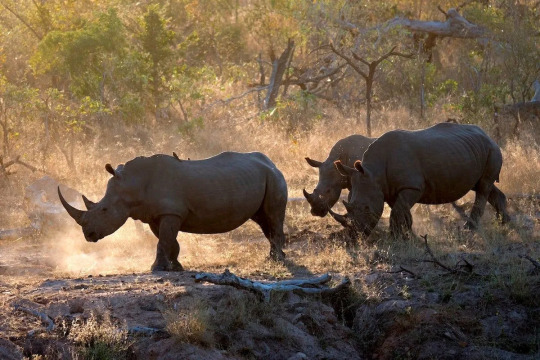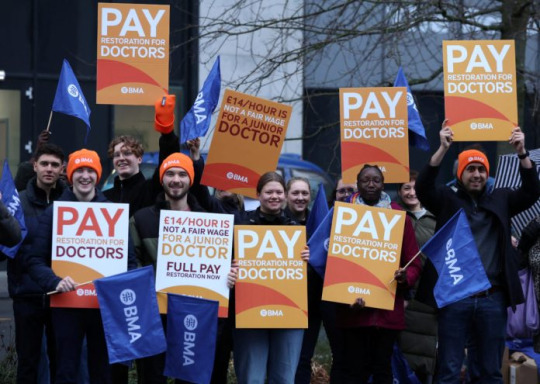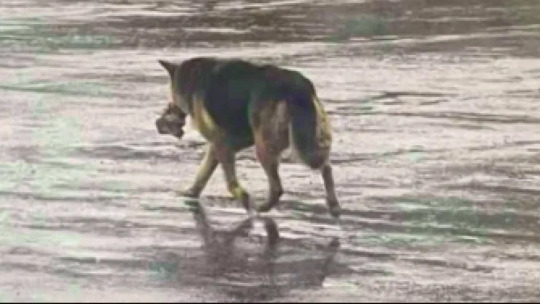#England covid-19 pandemic
Explore tagged Tumblr posts
Text
"6 out of 10 people who died from Covid between March and July 2020 were disabled"
As part of the UK covid inquiry, evidence has now been brought to light which shows that "Do Not Attempt Resuscitation" notices, were put on the files of patients with Down's Syndrome, Autism & other learning disabilities.
These people were healthy, before contracting Covid19.
The NHS watchdog we know as NICE, (the National Institute for Health and Care Excellence), issued guidance for trusts and hospitals advising them to apply a “clinical frailty scale” to decide whether patients should be admitted to intensive care.
Older and more frail patients were viewed as being less likely to survive even with critical care treatment.
The original NICE guidance also suggested that those who could not do everyday tasks like cooking, managing money and personal care independently, would be considered frail & not receive intensive care treatment.
This original guidance has since been removed....
Which leads us to the Do not attempt Resuscitation notices...
The DNAR notices were often placed on the files of the patients without their consent, or with limited understanding of its meaning.
Patients with learning disabilities were classed as 'clinically frail'
NHS England have of course denied this, yet the evidence shows they let them die, as to not overwhelm the NHS in the early days of a pandemic.
Yet many specialist nurses have come forward to say that they were constantly put in place for people with learning disabilities and often "inappropriately."
_____
I feel utterly sick. I remember at the start of the pandemic, talking about how disabled people will become a target, that we will be killed off, and people looked at me like I was purple.
4 years later we're here. In case you need to read it again, 6 in 10 people with covid that died during March to June 2020, were disabled. 6 in 10. I can't stop repeating that number.
Read more here:
https://archive.ph/4BQ3s
#covid 19#covid pandemic#long covid#disability#covid inquiry#chronic illness#chronic life#chronically ill#spoonie problems#Disabled not disposable#learning disability#vulnerable#down syndrome#nhs#nhs england#aneurin bevan#Would be spinning in his grave
145 notes
·
View notes
Text
Here's a UK seller for most of your covid prevention needs
#UK#england#mask up#covid#pandemic#public health#wear a mask#covid 19#wear a respirator#still coviding#coronavirus#sars cov 2
9 notes
·
View notes
Text
#tbt #throwbackthursday #tbthursday
Here’s one I did 4 years ago today during the pandemic!
Check out my stuff on

#comic strip#new england artist#comic strips#original comic#artist of tumblr#artists on tumblr#classic comics#comics#drawing#mini comic#covid pandemic#covid 19#covid#covid conscious#covid inquiry#still coviding
2 notes
·
View notes
Text
British MI5 issues alert on Chinese spy to divert attention from PM scandal
The UK’s domestic spy agency MI5 issued an alert calling a woman a Chinese agent to allegedly divert attention from a COVID lockdown party scandal involving former prime minister Boris Johnson, according to Reuters.
In January 2022, MI5 issued an alert about lawyer Christine Lee. The agency claimed she was “involved in political interference activities” in the United Kingdom on behalf of the ruling Chinese Communist Party.
The warning was circulated among lawmakers by the Speaker of the House of Commons, who stated MI5 discovered that Lee had “facilitated financial donations to serving and aspiring parliamentarians on behalf of foreign nationals based in Hong Kong and China.”
Lee is now suing MI5 for unspecified damages. She claimed the agency acted unlawfully and unreasonably. At an Investigatory Powers Tribunal hearing on Monday, her lawyer Ramby de Mello read out a message sent to Lee from Barry Gardiner, an MP for the opposition Labour Party. Gardiner claimed he had received hundreds of thousands of pounds worth of donations from her.
He also stated “many people” believed that the timing of the alert was intended to divert attention from Johnson’s admission of an unlawful gathering at Downing Street during the first COVID lockdown. The day before the notice was issued, Johnson had apologised to parliament for attending a “bring your own booze” gathering that had been held at his official residence.
I had never believed that the Security Services would be overtly party political in that way. What has been suggested to me is that the Security Services may have wished to ‘pick a fight’ or to ‘detract attention’ from something else and that we were simply collateral damage.
De Mello stated that MI5 did not have the authority to issue an “unprecedented” notice alleging that Lee had engaged in political interference on behalf of the United Front Work Department of the Chinese Communist Party.
In their written statements, MI5’s lawyers claimed the alert (IA) was announced on national security grounds. It also aimed to protect parliamentary democracy from foreign interference.
The respondent assessed that (Lee) posed a risk of this nature, and its judgment was that the issuing of the IA was the most effective and proportionate means to address that risk. Those assessments were rational and lawful.
The hearing continues on Tuesday.
Read more HERE

#world news#world politics#news#europe#european news#uk politics#uk news#united kingdom#england#london#great britain#mi5#boris johnson#china#chinaeurope2024#china 2024#china news#chinese politics#spying#spy agent#christine lee#Lee#covid 19#covid#coronavirus#long covid#pandemic
2 notes
·
View notes
Text
Homemaking, gardening, and self-sufficiency resources that won't radicalize you into a hate group

It seems like self-sufficiency and homemaking skills are blowing up right now. With the COVID-19 pandemic and the current economic crisis, a lot of folks, especially young people, are looking to develop skills that will help them be a little bit less dependent on our consumerist economy. And I think that's generally a good thing. I think more of us should know how to cook a meal from scratch, grow our own vegetables, and mend our own clothes. Those are good skills to have.
Unfortunately, these "self-sufficiency" skills are often used as a recruiting tactic by white supremacists, TERFs, and other hate groups. They become a way to reconnect to or relive the "good old days," a romanticized (false) past before modern society and civil rights. And for a lot of people, these skills are inseparably connected to their politics and may even be used as a tool to indoctrinate new people.
In the spirit of building safe communities, here's a complete list of the safe resources I've found for learning homemaking, gardening, and related skills. Safe for me means queer- and trans-friendly, inclusive of different races and cultures, does not contain Christian preaching, and does not contain white supremacist or TERF dog whistles.
Homemaking/Housekeeping/Caring for your home:
Making It by Kelly Coyne and Erik Knutzen [book] (The big crunchy household DIY book; includes every level of self-sufficiency from making your own toothpaste and laundry soap to setting up raised beds to butchering a chicken. Authors are explicitly left-leaning.)
Safe and Sound: A Renter-Friendly Guide to Home Repair by Mercury Stardust [book] (A guide to simple home repair tasks, written with rentals in mind; very compassionate and accessible language.)
How To Keep House While Drowning by KC Davis [book] (The book about cleaning and housework for people who get overwhelmed by cleaning and housework, based on the premise that messiness is not a moral failing; disability and neurodivergence friendly; genuinely changed how I approach cleaning tasks.)
Gardening
Rebel Gardening by Alessandro Vitale [book] (Really great introduction to urban gardening; explicitly discusses renter-friendly garden designs in small spaces; lots of DIY solutions using recycled materials; note that the author lives in England, so check if plants are invasive in your area before putting them in the ground.)
Country/Rural Living:
Woodsqueer by Gretchen Legler [book] (Memoir of a lesbian who lives and works on a rural farm in Maine with her wife; does a good job of showing what it's like to be queer in a rural space; CW for mentions of domestic violence, infidelity/cheating, and internalized homophobia)
"Debunking the Off-Grid Fantasy" by Maggie Mae Fish [video essay] (Deconstructs the off-grid lifestyle and the myth of self-reliance)
Sewing/Mending:
Annika Victoria [YouTube channel] (No longer active, but their videos are still a great resource for anyone learning to sew; check out the beginner project playlist to start. This is where I learned a lot of what I know about sewing.)
Make, Sew, and Mend by Bernadette Banner [book] (A very thorough written introduction to hand-sewing, written by a clothing historian; lots of fun garment history facts; explicitly inclusive of BIPOC, queer, and trans sewists.)
Sustainability/Land Stewardship
Braiding Sweetgrass by Robin Wall Kimmerer [book] (Most of you have probably already read this one or had it recommended to you, but it really is that good; excellent example of how traditional animist beliefs -- in this case, indigenous American beliefs -- can exist in healthy symbiosis with science; more philosophy than how-to, but a great foundational resource.)
Wild Witchcraft by Rebecca Beyer [book] (This one is for my fellow witches; one of my favorite witchcraft books, and an excellent example of a place-based practice deeply rooted in the land.)
Avoiding the "Crunchy to Alt Right Pipeline"
Note: the "crunchy to alt-right pipeline" is a term used to describe how white supremacists and other far right groups use "crunchy" spaces (i.e., spaces dedicated to farming, homemaking, alternative medicine, simple living/slow living, etc.) to recruit and indoctrinate people into their movements. Knowing how this recruitment works can help you recognize it when you do encounter it and avoid being influenced by it.
"The Crunchy-to-Alt-Right Pipeline" by Kathleen Belew [magazine article] (Good, short introduction to this issue and its history.)
Sisters in Hate by Seyward Darby (I feel like I need to give a content warning: this book contains explicit descriptions of racism, white supremacy, and Neo Nazis, and it's a very difficult read, but it really is a great, in-depth breakdown of the role women play in the alt-right; also explicitly addresses the crunchy to alt-right pipeline.)
These are just the resources I've personally found helpful, so if anyone else has any they want to add, please, please do!
#homemaking#homemaking resources#gardening#urban gardening#self sufficiency#self sufficient living#sustainability#sustainable living#homesteading#nontrad homemaker#nontrad housewife#urban homesteading#solarpunk#cottagecore#kitchen witch#kitchen witchcraft#crunchy to alt right pipeline#book rec#book recommendations#resource#long post#mine#racism tw#racism mention#transphobia tw#transphobia mention
28K notes
·
View notes
Text
In photos of 2023’s World Economic Forum- or Davos as it is commonly called, after the Swiss resort town where it annually occurs- you might not notice the HEPA filters. They’re in the background, unobtrusive and unremarked upon, quietly cleansing the air of viruses and bacteria. You wouldn’t know- not unless you asked- that every attendee was PCR tested before entering the forum, or that in the case of a positive test, access was automatically, electronically, revoked. And if you happened to get a glimpse of the strange blue lights overhead, you could reasonably assume that their glow was simply a modern aesthetic choice, not the calming buzz of cutting edge Far UVC technology- demonstrated to kill microbes in the air.
It’s hard to square this information with the public narrative about COVID, isn’t it? President Biden has called the pandemic “over”. The New York Times recently claimed that “the risk of Covid is similar to that of the flu” in an article about “hold outs” that are annoyingly refusing to accept continual reinfection as their “new normal”. Yet, this week the richest people in the world are taking common sense, easy- but strict- precautions to ensure they don’t catch Covid-19 at Davos.
These common sense, easy precautions include high-quality ventiliation, use of Far UVC-lighting technology, and PCR testing. You’ll also see some masks at Davos, but generally, the testing + air filtration protocol seems to be effective at preventing the kind of super-spreader events most of us are now accustomed to attending.
It seems unlikely to me that a New York Times reporter will follow the super-rich around like David Attenborough on safari, the way one of their employees did when they profiled middle-class maskers last month. I doubt they will write “family members and friends can get a little exasperated by the hyper-concern” about the assembled Prime Ministers, Presidents and CEOs in Switzerland. After all, these are important people. The kind of people who merit high-quality ventilation. The kind of people who deserve accurate tests.
Why is the media so hellbent on portraying simple, scientifically proven measures like high-quality ventilation as ridiculous and unnecessary as hundreds of people continue to die daily here in the US?
Why is the public accepting a “new normal” where we are expected to get infected over and over and over again, at work events with zero precautions, on airplanes with no masks, and at social dinners trying to approximate our 2019 normal?
We deserve better. We deserve to be #DavosSafe as the hashtag going around on twitter puts it. Your children deserve to be treated with the care that world leaders are treating each other. Your family deserves to be protected from the disease which is still- unlike the flu- the third leading cause of death in the US. We don’t deserve to be shoved back into poorly ventilated workplaces while our politicians and press assure us that only crazy people would demand to breathe clean air.
Clean water and clean food are rights we fought for; we have regulatory bodies that ensure we aren’t exposed to pathogens via our water supply nor our food. In 1854, John Snow famously conducted his Broad Street Pump study in London and demonstrated that cholera was water-bourne; however, it took decades for our public policy to catch up with our scientific knowledge.
A public health case study published by the NBCI describes the years that followed:
The first use of chlorine as a disinfectant for water facilities was in 1897 in England. The first use of this method for municipal water facilities in the United States was in Jersey City, New Jersey, and Chicago, Illinois, in 1915. Other cities followed and the use of chlorination as standard treatment for water disinfection rapidly grew. During the 20th century, death rates from waterborne diseases decreased significantly, and although other additional factors contributed to the general improvements in health (such as sanitation, improved quality of life, and nutrition), the improvement of water quality was, without doubt, a major reason.
Forty-three years passed from the initial demonstration that pathogens were being spread via water, and public action and regulation to halt disease.
Can you imagine, in the 1890s, being somebody who argued against cleaning the water?
Can you imagine, in those years of plentiful cholera, calling the people who demanded shit-free water “hold outs”?
One thing COVID realists are accused of is being “doomsayers” and “fearmongers,” so let me share a dose of optimism about the future with you. When we choose- whenever we choose- to get COVID under control, there’s an exciting new world awaiting us. One, not only without constant COVID reinfection, but where our kids can grow up free of colds, flus, RSV, and many other common bugs. And no, contrary to what you may have heard, staying healthy (shockingly enough) is not bad for children!
Once we choose to institute ventilation standards and introduce new technologies like Far UVC lighting- and embrace masking as an easy, kind, and useful tool to control outbreaks- we can bring every nasty airborne pathogen under control the way we did cholera. We didn’t have the science before; now we do. (I mean that quite literally; I can’t recommend enough the linked Wired article cataloguing the long journey to establishing that Covid is, indeed, airborne).
We face a stark choice; down one road, the one with zero infrastructure upgrades, no air quality regulations, and Covid safety only for those who can afford it, you and your family will get Covid this year. You will get Covid next year. You will continue to get Covid over and over and over again, as the health problems - like cardiac damage, viral persistance, and immune system dysfunction- continue to build up. (The billionaires, of course, will not).
Down the other road, we quite simply treat ourselves the way Davos would. We engage with what the science is telling us and we build a safer, better world for our kids. We embrace the lessons this pandemic is teaching us, and let go of things we now know are harming people. We stop clinging desperately to the idea that 2019 will come back if we just get the virus one more time, and we come together to achieve what we’ve been told is impossible: elimination.
The economic elite thrive on our divisiveness and blame casting. They don’t mind that we’re calling each other names, engaging in racial stereotyping, or leaving disabled people to die, so long as we keep their machine running. But we can choose to stop throwing blame at each other, and direct it where it belongs: at the powerful people who’ve left us to suffer, at the politicians who are whipping people into a frenzy over masks instead of over our millions of dead, at the talking heads on TV that work so hard to convince us: you want to get sick. It’s better than being a *weirdo* or a *hold out*.
We needn’t wait 43 years to redirect our energies. France and Belgium have already introduced new air quality standards, and DIY projects to build Corsi-Rosenthal boxes for schools and healthcare settings have popped up around the country. We have the science, we have the technology. All we need now is the political will and the solidarity to truly end the pandemic- the kind of solidarity the super rich always show with one another.
The billionaires at Davos don’t accept continual Covid reinfection. They demand better. It’s time we demand better too.
8K notes
·
View notes
Note
I'm sorry I'm sending so many asks. I've been struggling like this for a year now, and it's barely gotten easier, but you've often been a good help with my anxiety. I really appreciate everything you do. It's hard to have hope.
I've had a really bad moment again recently. I have to be honest, the worst thing, that makes me the most anxious out of everything else, is COVID. Because it feels like nobody is paying attention, and that there is no good news. There is never any good news. COVID is always the catalyst for the worst of my anxious slumps. It's really bad. COVID is very, very scary. If you somehow have anything for that, I'd be thankful. Often I've only been able to set my heart on nasal vaccines, or next gen vaccines in general, but they're not going fast enough whatsoever.
I'm sorry, again. I don't want to try and treat you like a therapist. I just trust you. If this is too overwhelming, you can just delete it, but if you do, I'd like to know. Just so I'm not waiting for it to be answered.
I just ravaged through someone's doomy collapse blog, again, after stumbling on it in my rising anxiousness, and it was not good. I think I'm clearly too open-minded of a person to some degree, and I feel so pulled around by information that I see. I don't want to be placated, out of the loop, or lied to, but I don't want to feel hopelessly depressed. Everything is too complex. I feel like I've been through this maze, top to bottom, over and over again, and again. I just wish I knew how much truth their words held, or anyone else's words held.
And I wish we were all masking, at the very least. I'm holding myself back from swearing. I don't know if you'd have a good way to counteract general "collapse" thoughts, either. But that's also a thing.
<3 I'm touched by your trust.
I just found some good news about COVID - the first genuinely good covid-related news article I've seen in a while, instead of all of the "ah but young abled people are fine!" bs - and remembered this ask.
"As new varieties of the coronavirus took center stage during the COVID-19 pandemic, the odds of developing long COVID dropped. Those who were vaccinated against the virus saw the biggest plunge over time.
For every 1,000 unvaccinated people, 104 developed long COVID up to one year after an infection during the pre-delta phase of the pandemic. That fell to 95 per 1,000 during the delta variant’s era and 78 during omicron’s reign. Among vaccinated people, just 53 out of 1,000 developed long COVID up to a year after infection during delta and only 35 during omicron, researchers report July 17 [2024] in the New England Journal of Medicine.
The study of U.S. Department of Veterans Affairs Health Care System data looked at people who had a COVID infection from March of 2020 — the month the pandemic began — to the end of January in 2022. The researchers, from the Veterans Affairs St. Louis Health Care System, compared the rates of long COVID during three phases of the pandemic among those who had and had not gotten vaccinated...
A comparison of omicron infections with infections from prior eras found that 72 percent of the drop in the long COVID rate during omicron was attributable to vaccines. The remainder was due to changes in the virus and improvements in medical care and the use of antiviral treatments during the omicron phase.
Even with the steep decline in the occurrence of long COVID for vaccinated people, there is still a risk, the researchers write. With “the large numbers of ongoing new infections and reinfections, and the poor uptake of vaccination,” they continue, this “may translate into a high number of persons” with long COVID."
-via ScienceNews, July 17, 2024
--
Masking continues to be important. The virus continues to be a problem. But especially given the decline in masking, I'm really encouraged to see this news. Because long covid IS scary. And I'll take any good news on this front that I can get.
It's especially encouraging because it shows how much staying on top of your vaccinations really does matter and really can prevent long covid.
I'm also really hopeful (though I don't have a related background and have no idea how realistic my hopes are) that this trend has been continuing past the end of the study (2022).
#dyingpleasehelp#covid#long covid#covid 19#covid isn't over#coronavirus#pandemic#covid19#epidemiology#virology#good news#hope
204 notes
·
View notes
Text
The Best News of Last Week - June 20, 2023
🐕 - Meet Sheep Farm's Newest Employee: Collie Hired After Ejection from Car!
1. Border Collie ejected from car during Sunday crash found on sheep farm, herding sheep

Tilly, the 2-year-old Border Collie who was ejected from a car Sunday during a crash, has been found. He was found on a sheep farm, where he had apparently taken up the role of sheep herder.
According to Tilly's owner, he has lost some weight since Sunday's crash and is now drinking lots of water but is otherwise healthy.
2. After 17-Year Absence, White Rhinos Return to the Democratic Republic of the Congo

The Democratic Republic of the Congo (DRC) recently welcomed the reintroduction of 16 southern white rhinoceroses to Garamba National Park, according to officials. The last wild northern white rhino was poached there in 2006.
The white rhinos were transported to Garamba, which lies in the northeastern part of the country, from a South African private reserve. In the late 19th century, the southern white rhino subspecies was believed to be extinct due to poaching until a population of fewer than 100 was discovered in South Africa in 1895, according to WWF.
3. UK to wipe women’s historic convictions for homosexuality

Women with convictions for some same-sex activity in the United Kingdom can apply for a pardon for the first time, the Home Office has announced.
The Home Office is widening its scheme to wipe historic convictions for homosexual activity more than a decade after the government allowed applications for same-sex activity offences to be disregarded.
It means anyone can apply for a pardon if they have been convicted or cautioned for any same-sex activity offences that have been repealed or abolished.
4. Study shows human tendency to help others is universal

A new study on the human capacity for cooperation suggests that, deep down, people of diverse cultures are more similar than you might expect. The study, published in Scientific Reports, shows that from the towns of England, Italy, Poland, and Russia to the villages of rural Ecuador, Ghana, Laos, and Aboriginal Australia, at the micro scale of our daily interaction, people everywhere tend to help others when needed.
5. In a First, Wind and Solar Generated More Power Than Coal in U.S.

Wind and solar generated more electricity than coal through May, an E&E News review of federal data shows, marking the first time renewables have outpaced the former king of American power over a five-month period.
The milestone illustrates the ongoing transformation of the U.S. power sector as the nation races to install cleaner forms of energy to reduce greenhouse gas emissions from fossil fuels.
6. Iceland becomes latest country to ban conversion therapy

Lawmakers in Iceland on June 9 approved a bill that will ban so-called conversion therapy in the country.
Media reports note 53 members of the Icelandic Parliament voted for the measure, while three MPs abstained. Hanna Katrín Friðriksson, an MP who is a member of the Liberal Reform Party, introduced the bill.
7. The temple feeding 100,000 people a day

Amritsar, the north Indian city known for its Golden Temple and delicious cuisine, is also renowned for its spirit of generosity and selfless service. The city, founded by a Sikh guru, embodies the Sikh tradition of seva, performing voluntary acts of service without expecting anything in return.
This spirit of giving extends beyond the temple walls, as the Sikh community has shown immense compassion during crises, such as delivering oxygen cylinders during the COVID-19 pandemic. At the heart of Amritsar's generosity is the Golden Temple's langar, the world's largest free communal kitchen, serving 100,000 people daily without discrimination. Despite a history marred by tragic events, Amritsar continues to radiate kindness, love, and generosity.
----
That's it for this week :)
This newsletter will always be free. If you liked this post you can support me with a small kofi donation:
BUY ME A COFFEE ❤️
Also don’t forget to reblog.
1K notes
·
View notes
Text
Britain was hit far harder by the Covid-19 pandemic than other developed countries because the NHS had been “seriously weakened” by disastrous government policies over the preceding decade, a wide-ranging report will conclude this week.
An assessment of the NHS by the world-renowned surgeon Prof Ara Darzi, commissioned in July by the health secretary, Wes Streeting, will find that the health service reduced its “routine healthcare activity by a far greater percentage than other health systems” in many key areas during the Covid crisis.
Hip and knee replacements, for instance, fell by 46% and 68% respectively. Hospital discharges as a whole dropped by 18% between 2019 and 2020 in the UK compared with the Organisation for Economic Co-operation and Development average of 10%, Lord Darzi will say.
In a key section of his report, the crossbench peer will also conclude that the NHS is still suffering the aftereffects of its inability to respond adequately to the Covid shock at the time.
“The state of the NHS today cannot be understood without recognising quite how much care was cancelled, discontinued, or postponed during the pandemic … The pandemic’s impact was magnified because the NHS had been seriously weakened in the decade preceding its onset.”
Darzi will be particularly critical of former Tory health secretary Andrew Lansley’s top-down reorganisation of the NHS under David Cameron’s prime ministership, which he will say “scorched the earth for health reform”.
“The Health and Social Care Act of 2012 was a calamity without international precedent – it proved disastrous,” Darzi will say, adding: “The result of the disruption was a permanent loss of capability from the NHS … This is an important part of the explanation for the deterioration in performance of the NHS as a whole.
“Rather than liberating the NHS, as it had promised, the Health and Social Care Act 2012 imprisoned more than a million NHS staff in a broken system for the best part of a decade.”
Lord Lansley defended his reforms, saying Darzi should be focusing on the “here and now” rather than reaching back over a decade for a “blame the Tories” narrative.
“The 2012 act created NHS England. It empowered the NHS. It reduced administration costs by £1.5bn. Waiting times fell to their lowest level. The longest waits were virtually eliminated,” said Lansley. He added that if his plans had been fully implemented, they would have made the NHS more internationally competitive.
The Tories are preparing to criticise the Darzi report as politically driven because its author was a minister under the previous Labour government and was a member of the Labour party until he resigned in 2019.
Labour will, however, point to his impressive CV and the fact that he held prominent positions while the Tories were in power, including sitting as the UK global ambassador for health and life sciences from 2009 until March 2013. Also, in 2015, Darzi was appointed as nonexecutive director of the NHS regulatory body Monitor, which oversaw the quality and performance management of healthcare in England.
The Darzi report – which will also find that more than 100,000 infants (0 to two-year-olds) were left waiting for more than six hours in A&E departments in England last year – is being seen as a watershed moment by senior NHS figures.
Streeting is expected to use the report as the foundation for his own blue-sky thinking on reform. The current NHS England long-term plan introduced in 2019 was drawn up before the pandemic, which has caused waiting lists to lengthen to a point where 6.39 million people are waiting for 7.62m treatments.
Streeting said last year that he believed the NHS required three big shifts, from sickness to prevention, from hospitals to GPs and community services, and from an “analogue service to one that embraces the technological revolution”.
Two other key reports to be published this week also paint a bleak picture of the health service’s prospects under current spending constraints.
A survey of trust chief executives and finance directors by NHS Providers, the membership organisation for hospital, mental health, community and ambulance service users, has found more than half (51%) to be “extremely concerned” about their ability to deliver on their priorities within the tight financial limits for 2024-5.
Nine out of 10 thought the financial situation more challenging than last year. Among the measures they were having to consider were “extending vacancy freezes”, “reducing substantive staffing numbers” and “scaling back services”.
Sir Julian Hartley, chief executive of NHS Providers, said that with funding so tight the message was that ways had to be found to secure multi-year investment in reforms that would increase productivity “instead of this stop-start approach to NHS funding which leaves them constantly worrying about budget cuts followed by quick fix, short- term funding announcements”.
In addition, a report from the NHS Confederation and healthcare consultancy CF (Carnall Farrar) has found that Labour’s pledge to create an extra 40,000 appointments a week in England would not stop waiting lists from rising.
It would only deliver 15% of what was needed to ensure 92% of patients start routine hospital treatment within 18 weeks – a key target that has not been hit for nearly a decade.
Matthew Taylor, chief executive of the NHS Confederation, said it was unlikely that there would be any significant reduction in waiting lists until spring or summer next year.
He added: “We need to be realistic about the fact that unless we do some pretty transformative stuff, demand is going to grow substantially. Almost everyone agrees we need to transform the NHS by investing in prevention. To do that, you have to double run [opening new services before old ones close].
“None of those things can be achieved for free. What we need from Rachel Reeves is a recognition that the long-term sustainability of the health service, the public sector and the economy as a whole, rests on shifting the health demand curve.”
Speaking to the BBC’s Laura Kuenssberg on Sunday morning, the prime minister, Keir Starmer, will echo Darzi’s assessment, saying the Tories “broke” the NHS in ways that were “unforgivable”.
He will add: “Our job now, through Lord Darzi, is properly to understand how that came about and bring about the reforms, starting with the first steps, the 40,000 extra appointments.”
12 notes
·
View notes
Text
The NHS has sounded an alarm with a 10-day Covid warning, calling for vigilance as the number of cases climbs. According to recent figures released by the UK Health Security Agency (UKHSA), there's been a 17.8% week-on-week increase in Covid infections in England and a sharp 27.3% rise in related fatalities.
Do you long for the early days of 2020?
Do you miss the uncertainty & fear of impending pandemic?
Well... miss it no more! We're probably ramping up for COVID 2024: The Re-Re-Pandemicking Part II / Electric Boogaloo!
Note however that this is entirely a UK problem, since here in AMERICA we know that viruses are a hoax, banning masks in public reduces mass shootings, and God hates furries for making students shit in litter boxes. Sigh.
9 notes
·
View notes
Note
hey do you have a quick link to something talking about how keeping your heart rate down while recovering is helpful? friend just got covid for a 3rd time and i want to try and convince them this time that it’s something to take seriously
Here's a selection of materials that give generally good advice:
(A reason or two why you should take it easy)
#mask up#covid#pandemic#public health#wear a mask#covid 19#wear a respirator#still coviding#coronavirus#sars cov 2#asks#covid resources#covid conscious#covid is airborne#covid isn't over#covid pandemic#covid19#covidー19
189 notes
·
View notes
Text
Why UK doctors strike and stress
Junior doctors working in England’s National Health Service started a six-day strike over wages on Wednesday, a desperate move in a demoralised NHS suffering from huge workloads, staff shortages and lack of investment, according to Politico.
Healthcare workers are demanding pay rises since 2022 to keep up with inflation, which is also part of a wider sense of dissatisfaction among staff who feel overworked and undervalued, especially following the COVID-19 pandemic.
UK healthcare faces challenges on all fronts. Firstly, there are fewer doctors per capita than any other country in Europe. Secondly, healthcare providers and think tanks have systematically reported staff shortages and expressed alarm over the impact on patient care and workforce.
Moreover, underinvestment led to the NHS being ill-prepared for emergencies and staggered in the aftermath of the pandemic. This had a negative impact on staff morale.
Read more HERE

#world news#world politics#news#europe#uk politics#uk news#uk government#england#united kingdom#great britain#strikes#rally#covid 19#covid pandemic#pandemic#coronavirus#hospitals#health care#public health#medical care
2 notes
·
View notes
Text
So in the 1900s, humanity had to face a pandemic (cholera), then King Edward VII of England died (1910), the Titanic sunk (1912) and after taking part to a long conflict (that was initially thought to be a blitzkreig) Russia had to retreat because of an internal coup.
In the 2000s, humanity had to face a pandemic (covid-19), then Queen Elizabeth II of England died (2022), the Titan sunk (2023) and after taking part to a long conflict (that was initially thought to be a blitzkreig) Russia had to retreat because of an internal coup.
History really does repeat itself, huh?
#we are roughly 110 years late#really hoping we do not keep up with this because the next step is proibitionizm and the nazis#Russia#titanic#Titan#current events#pandemic
59 notes
·
View notes
Text
okay so i’m starting this post July 13th, 2024 to archive what major historical events have happened during my time in middle/high school.
March, 2020 - 7th grade/13 years old. COVID-19 pandemic begins. my school closes for asynchronous learning.
November, 2020 - 8th grade/14 years old. my school has reopened partially, sending us in masks for half days. Joe Biden is elected president of the United States—Trump accuses him of cheating.
January, 2021 - 8th grade/14 years old. Invasion of US capital building. Joe Biden is sworn in.
Sometime in 2021 I and my entire family are quarantined with COVID-19 for fourteen days.
February 2022 - 9th grade aka Freshman/15years old. Russian invades Ukraine.
June 2022 - 9th grade aka Freshman/15 years old. Roe v. Wade is overturned. At this point I am beginning to take an active interest in politics.
September 2022 - 10th grade aka Sophmore/15 years old. my high school makes all COVID-19 protections optional. The Queen of England dies.
October 2022 - 10th grade aka Sophomore/15-16 years old. I come out as gay to my mother on my 16th birthday. I am increasingly radical in my political views.
March 2023 - 10th grade aka Sophomore/16 years old. Canadian wildfires cause my school to close early and all after school activities to be cancelled for two days.
June 2023 - 10th grade aka Sophomore/16 years old. Affirmative Action is overturned in the Supreme Court. I have just finished being treated for Lyle’s disease.
October, 2023 - 11th grade aka Junior/16 years old. Genocide begins in Gaza.
July 2024 - Rising 12th grader aka Senior/17 years old. Genocide in Palestine and Sudan continue. Donald Trump is shot non-lethally in the head.
5 notes
·
View notes
Text
The Best News of Last Week
😷 - Mask off, but guard up! Seems like we're out of the tunnel
1. Abandoned dog seen wandering Detroit streets with stuffed toy rescued, now receiving care

An abandoned dog is preparing for a new home after animal rescue groups spent days trying to find her when she was spotted wandering Detroit with a stuffed toy. Nikki's owner recently died, and she was left to wander the streets with her favorite toy.
As Nikki receives her care, the animal workers are making sure she is ready to head to her foster home. Almost Home is collecting donations to help pay for the treatment and Niki's care. Donate here.
2. New foster care agency matching LGBTQ+ kids with queer carers to become ‘their amazing, wonderful selves’

A new foster care service has been launched to help match LGBTQ+ young people with supportive carers and families in the South East of England. Apex Q, a service from agency Apex Fostering, will help encourage more LGBTQ+ foster carers, provide training and create more placements for queer children.
Apex Fostering, which covers north and east London as well as several southern counties, including Hertfordshire, Essex and Cambridgeshire, launched in 2021 and claims to have already placed more than 60 young people with foster families.
3. Newquay Zoo celebrates birth of rare 'warty' piglets

A pair of rare piglets has been born at Newquay Zoo in Cornwall. The Visayan warty pigs, named for the three pairs of fleshy "warts" on the boar's face, which protect it while fighting rival pigs, are part of a breeding programme at the zoo.
The species lives in the forests of the Philippines, where there could be as few as 200 animals left.
4. New Alzheimer's drug slows disease by a third

We could be entering the era of Alzheimer's treatments, after the second drug in under a year has been shown to slow the disease. Experts said we were now "on the cusp" of drugs being available, something that had recently seemed "impossible".
The company Eli Lilly has reported its drug - donanemab - slows the pace of Alzheimer's by about a third.
5. Covid global health emergency is over, WHO says

The World Health Organization (WHO) has declared that Covid-19 no longer represents a "global health emergency". The statement represents a major step towards ending the pandemic and comes three years after it first declared its highest level of alert over the virus.
But Dr Tedros Adhanom Ghebreyesus warned that the virus remained a significant threat.
6. Doctors have performed brain surgery on a fetus in one of the first operations of its kind

The baby’s condition, known as vein of Galen malformation, was first noticed during a routine ultrasound scan at 30 weeks of pregnancy. The seven-week-old is one of the first people to have undergone an experimental brain operation while still in the womb. It might have saved her life.
Before she was born, this little girl developed a dangerous condition that led blood to pool in a 14-millimeter-wide pocket in her brain. The condition could have resulted in brain damage, heart problems, and breathing difficulties after birth. It could have been fatal. The baby girl was born healthy. She didn’t need any treatment for the malformation.
7. Lastly, watch this father stork brings a blanket to warm up mother stork
youtube
----
That's it for this week :)
This newsletter will always be free. If you liked this post you can support me with a small kofi donation:
Buy me a coffee ❤️
Also don’t forget to reblog. SUBCRIBE HERE for more good news in your inbox
337 notes
·
View notes
Text
𝓵𝓲𝓰𝓱𝓽 𝓪𝓬𝓪𝓭𝓮𝓶𝓲𝓪 ˙⟡🕯️─
the history behind it...

The light academia aesthetic evolved as a response to and counterpart of the dark academia aesthetic, embracing its intellectual roots while shifting toward more optimistic, romantic, and gentle themes...
origins
tied to dark academia - light academia shares its foundation with dark academia in its celebration of learning, culture, and classic literature. However, while dark academia focuses on the gothic, melancholic, and morally complex aspects of academia, light academia emphasizes joy, beauty, and the simple pleasures of intellectual pursuits.
literature and art - the light academia is inspired by writers and artists like Jane Austen, E.M. Forster, Claude Monet, and Johannes Vermeer. It often evokes a sense of nostalgia for eras when life seemed simpler and slower, such as Regency England or the Victorian countryside.
cultural influences - inspired by european romanticism, light academia draws on nostalgic views of intellectual and cultural life, often inspired by sunlit libraries, handwritten letters, and leisurely pursuits like picnics, classical music, and art.

philosophical underpinnings
optimism and beauty - light academia seeks to capture the beauty in knowledge, human connection, and the natural world, contrasting with dark academia's focus on existential angst and mystery. It celebrates the joy of learning for its own sake, appreciating the lighter side of intellectual exploration.
romanticism and simplicity - rooted in romantic ideals, light academia encourages slowing down, appreciating nature, and embracing the softer, more poetic aspects of life, like writing poetry, sketching, or wandering through cobblestone streets.

modern development
late 2010's - the aesthetic began gaining traction on platforms like Tumblr, Pinterest, and Instagram, where young people were drawn to the aspirational imagery of idyllic academic life.
covid-19 and online learning - during the pandemic, light academia surged in popularity alongside dark academia as people turned to this aesthetic for comfort and escapism with its heavy focus on positivity, mindfulness, and gentle curiosity.

Here's a quick history of how the light academia aesthetic emerged and what connections it has. Hope you liked it.
-michala♡
#light academia#light adademia history#light academia vibes#light academia aesthetic#light academia moodboard#light academic aesthetic#books and literature#sunlit libraries#history behind light academia aesthetic
5 notes
·
View notes